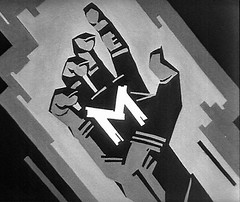this post is about interacting with yet another interesting person. i know i might be pushing it with these posts, but the truth is the more i talk to people whose job is completely different from advertising, the more i enlarge my view on how to be a better planner.
a couple of weeks ago, i attended this very cosy chat with
Dorina Lazar, about her experience as an actress (the gathering was organized by the same
foundation i'm just gonna keep on talking about). Apart from being one of the greatest Romanian actresses, she also is the managing director of one of the most interesting and appreciated theatres in Bucharest, the
Odeon Theater. She struck me as a modest person, and her discourse was nowhere near "big talk", being filled instead with simple words and deep emotions. A true communicator, because what she tries to do with each new role is to communicate a story from the perspective of a certain character.

The thing that i liked the most about her was the way in which she rejected verdicts: even when provoked to talk about the young generation's generally claimed superficiality, she dismissed all such preconceptions, and tried to give us her own view instead. And this view seemed to make a lot of sense to me: she brought into discussion how acting was taught when she was young, by professors who were first rate actors on top of everything else. People who inspired respect and admiration through everything they did: their performance, their pieces of advice, their tone of voice, their education, wit and discipline. People who were true mentors, as well as role models for their students. Whereas today, the actress says, most professors are second-hand actors, mostly frustrated by never making it on stage, and thus lacking a great deal of expertise, as well. And this translates in many cases of younger generations being deprived of inspiring role models.
Another thing that impressed me were the recollections from the beginning of her career, when she used to go together with her theater group on tour a lot, in order to play on the stages of village cultural chambers. So they were supposed to act in famous plays in front of peasants who were eating seeds and commenting all the time. Which she thought to be a very good experience. Because keeping such an audience engaged meant developing very powerful performances, and improving her communication skills a lot. She did not take it as an ordeal (although it sometimes was), but as a challenge, because those people were not stupid, but simply uneducated.
Oh, and she has this theory that each audience receives the show it deserves, because the artists on stage unconsciously react to the vibes they receive from the audience. Which means that people in the audience are always an important part of the show, even if the show is not necessarily interactive. This only comes as a further argument to support my earlier point about live performances and their audience, and what brands should learn from it.
Tickets to most good plays sell out very quickly lately, and she thinks this happens because people have started to rediscover the power of theater, of real performance, the sort that is able to inspire reflection, as well as deep emotions. She remembers the beginning of the nineties, when people desperately embraced TV, and stopped attending cultural events; however, she feels many of these people eventually got bored of seeing such little substance in TV shows, of hearing the same TV stars and commentators talking without actually solving anything and so on. And that's a good sign for the cultural level in our country. I sure hope she's right :).



No comments:
Post a Comment